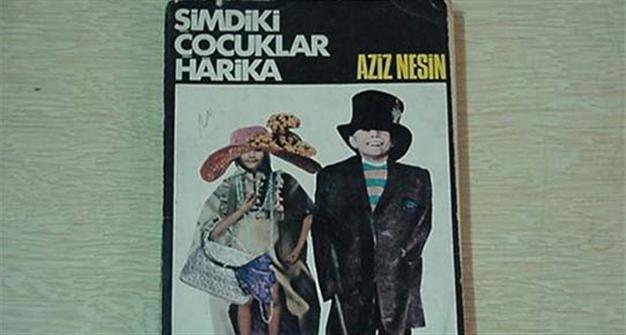Secondary school probes teachers for recommending students Aziz Nesin novel
ISTANBUL

'Şimdiki Çocuklar Harika,' (The children of our times are great) written by Aziz Nesin for children contains nevertheless a political flavor, added to the characteristic pungent style of the author.
A secondary school has launched an internal probe into 13 teachers for recommending students to read “Şimdiki Çocuklar Harika,” (The children of our times are great), one of Aziz Nesin's most acclaimed novels, written for the young audience - as well as their parents, according to the late author’s own account.
The novel, penned in 1967 by Turkey’s literary giant, narrates the friendship of two children through their exchange of letters and has long been a classic textbook for students. Despite being written for a young audience it contains a political flavor, added to the characteristic pungent style of the author.
However, the board of Kumport secondary school in Istanbul’s Bahçelievler district’s has launched an investigation following complaints to the Education’s Ministry’s hotline on the grounds that the book was “contrary to Turkish families’ traditions” and contained “profanity,” daily Cumhuriyet reported April 18.
The 13 teachers were asked to give their testimonies after they mentioned the novel in a recommended reading list. They were further under fire for describing the book as “a novel that will teach kids to defend their rights against adults” and “related how making some value judgments can be wrong.”
According to the teachers union Eğitim-Sen, the novel is normally included among the textbooks proposed by the Education Ministry’s blueprints to instructors.
Nesin passed away in 1995, unable to overcome the pogrom at the Madımak Hotel in Sivas on July 2, 1993, which killed 35 people. His remarks during an Alevi festival a day earlier were cited as the trigger of the attack.
Never shy of expressing either his anti-establishment or anti-religious views, Nesin had been devastated by the massacre, although he was among the few people who manage to escape the fire, according to the account given by his son.
He still remains one of the most resented authors among conservative and religious circles.
